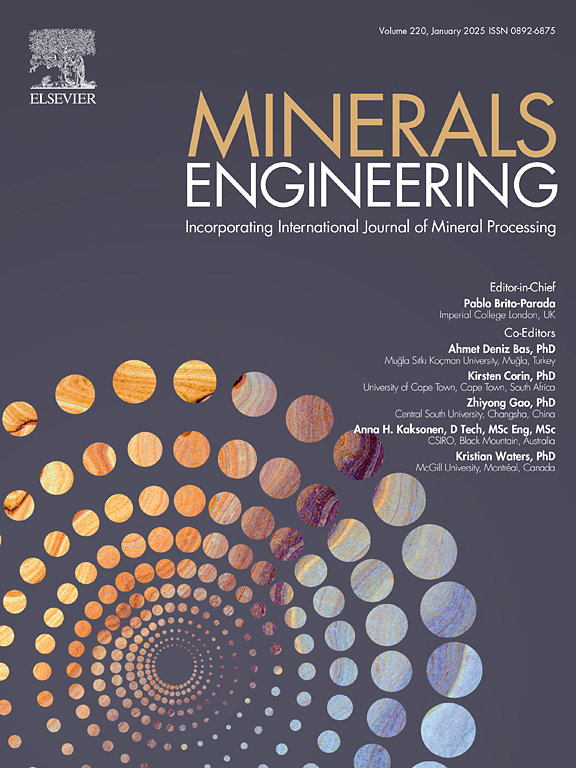Physics-informed machine learning for grade prediction in froth flotation
IF 4.9
2区 工程技术
Q1 ENGINEERING, CHEMICAL
引用次数: 0
Abstract
In this paper, physics-informed neural network models are developed to predict the concentrate gold grade in froth flotation cells. Accurate prediction of concentrate grades is important for the automatic control and optimization of mineral processing. Both first-principles and data-driven machine learning methods have been used to model the flotation process. The complexity of models based on first-principles restricts their direct use, while purely data-driven models often fail in dynamic industrial environments, leading to poor generalization. To address these limitations, this study integrates classical mathematical models of froth flotation processes with conventional deep learning methods to construct physics-informed neural networks. The models are trained, evaluated, and tested on datasets generated from a digital twin model of flotation cells that merges real-process data with physics-based simulations, with data collected over nearly half a year at a five-minute sampling rate. Compared to the best purely data-driven model, the top-performing physics-informed neural network reduced the mean squared error by 65% and the mean relative error by 34%, demonstrating superior generalization and predictive performance.
求助全文
约1分钟内获得全文
求助全文
来源期刊

Minerals Engineering
工程技术-工程:化工
CiteScore
8.70
自引率
18.80%
发文量
519
审稿时长
81 days
期刊介绍:
The purpose of the journal is to provide for the rapid publication of topical papers featuring the latest developments in the allied fields of mineral processing and extractive metallurgy. Its wide ranging coverage of research and practical (operating) topics includes physical separation methods, such as comminution, flotation concentration and dewatering, chemical methods such as bio-, hydro-, and electro-metallurgy, analytical techniques, process control, simulation and instrumentation, and mineralogical aspects of processing. Environmental issues, particularly those pertaining to sustainable development, will also be strongly covered.
 求助内容:
求助内容: 应助结果提醒方式:
应助结果提醒方式:


